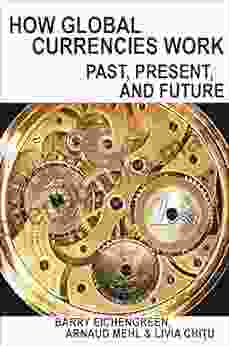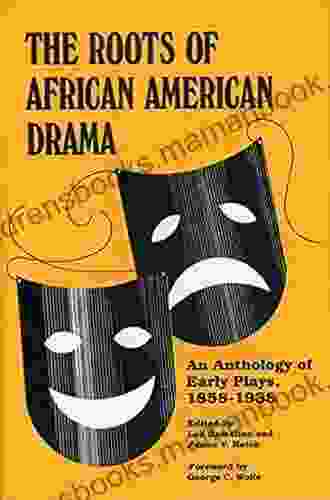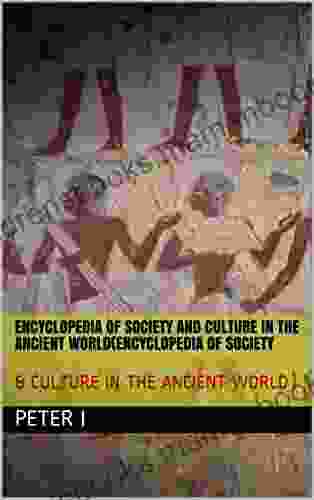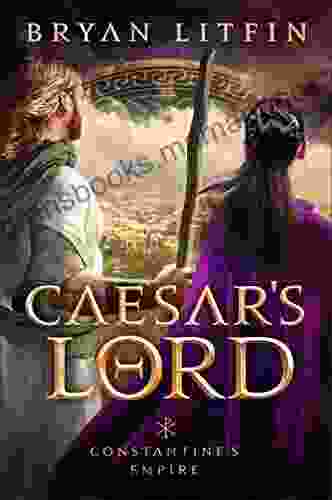The Rise and Reign of Constantine the Great: A Comprehensive Historical Analysis

Constantine the Great, the first Christian emperor of the Roman Empire, remains a pivotal figure in ancient history. His rise to power, religious policies, and lasting impact have shaped the course of Western civilization. This comprehensive historical analysis will delve into the life, reign, and legacy of Constantine, examining his military victories, his role in the spread of Christianity, and his contributions to the development of the Roman Empire.
4.7 out of 5
| Language | : | English |
| File size | : | 2016 KB |
| Text-to-Speech | : | Enabled |
| Lending | : | Enabled |
| Screen Reader | : | Supported |
| Print length | : | 122 pages |
Early Life and Rise to Power
Constantine was born into a military family in Naissus, Moesia Superior (present-day Niš, Serbia) around 272 AD. His father, Constantius Chlorus, was a prominent general who later became Caesar (junior emperor) in the West. Constantine received a military education and served under his father in various campaigns.
In 305 AD, Constantius Chlorus died suddenly, leaving Constantine as his successor. However, the succession was disputed by several other claimants, including Maxentius, the son of the former emperor Maximianus. Constantine marched on Rome and defeated Maxentius at the Battle of the Milvian Bridge in 312 AD. This victory secured his claim to the throne and marked a turning point in his life.
Conversion to Christianity
According to legend, Constantine had a vision of a cross in the sky before the Battle of the Milvian Bridge, with the words "In hoc signo vinces" ("In this sign, you will conquer"). Whether or not this vision actually occurred, Constantine's victory led him to adopt a more favorable attitude towards Christianity.
In 313 AD, Constantine and his co-emperor Licinius issued the Edict of Milan, which granted religious freedom to all citizens of the Roman Empire. This decree effectively ended the persecution of Christians, who had been subjected to various forms of oppression for centuries.
Constantine and the Church
Constantine's support for Christianity had a profound impact on the development of the religion. He convened the First Council of Nicaea in 325 AD, which standardized Christian doctrine and condemned the Arian heresy. Constantine also commissioned the construction of numerous churches, including the Basilica of Saint Peter in Rome and the Church of the Holy Sepulchre in Jerusalem.
However, Constantine's relationship with the Church was not always harmonious. He intervened in ecclesiastical affairs, appointed bishops, and imposed his own preferences on theological matters. Nonetheless, his patronage and protection contributed significantly to the growth and spread of Christianity throughout the empire.
Military Victories and Expansion
In addition to his religious policies, Constantine was also a skilled military commander. He fought numerous wars against the Franks, the Goths, and other Germanic tribes. His most famous victory was the Battle of Chrysopolis in 324 AD, which defeated Licinius and made Constantine the sole emperor of the Roman Empire.
Constantine also expanded the empire's borders by annexing new territories in the East, including parts of Armenia and Mesopotamia. He rebuilt and fortified the city of Byzantium, which he renamed Constantinople and made the new capital of the empire in 330 AD.
Administrative Reforms and Legacy
Constantine implemented several administrative reforms aimed at strengthening and centralizing the empire. He introduced a new tax system, reorganized the military, and reformed the provincial administration. He also divided the empire into four prefectures, each governed by a praetorian prefect.
Constantine's reign marked a watershed moment in Roman history. His conversion to Christianity transformed the empire's religious landscape and had a lasting impact on the development of Western civilization. His military victories and administrative reforms ensured the stability and expansion of the empire.
Constantine the Great was one of the most influential emperors in Roman history. His military achievements, religious policies, and administrative reforms shaped the course of the empire and left an enduring legacy. His conversion to Christianity had a profound impact on the development of the religion, and his patronage and protection contributed to its rise as a major force in the Roman world. Constantine's reign marked a turning point in ancient history, bridging the gap between the pagan past and the Christian future of the Roman Empire.
4.7 out of 5
| Language | : | English |
| File size | : | 2016 KB |
| Text-to-Speech | : | Enabled |
| Lending | : | Enabled |
| Screen Reader | : | Supported |
| Print length | : | 122 pages |
Do you want to contribute by writing guest posts on this blog?
Please contact us and send us a resume of previous articles that you have written.
 Top Book
Top Book Novel
Novel Fiction
Fiction Nonfiction
Nonfiction Literature
Literature Paperback
Paperback Hardcover
Hardcover E-book
E-book Audiobook
Audiobook Bestseller
Bestseller Classic
Classic Mystery
Mystery Thriller
Thriller Romance
Romance Fantasy
Fantasy Science Fiction
Science Fiction Biography
Biography Memoir
Memoir Autobiography
Autobiography Poetry
Poetry Drama
Drama Historical Fiction
Historical Fiction Self-help
Self-help Young Adult
Young Adult Childrens Books
Childrens Books Graphic Novel
Graphic Novel Anthology
Anthology Series
Series Encyclopedia
Encyclopedia Reference
Reference Guidebook
Guidebook Textbook
Textbook Workbook
Workbook Journal
Journal Diary
Diary Manuscript
Manuscript Folio
Folio Pulp Fiction
Pulp Fiction Short Stories
Short Stories Fairy Tales
Fairy Tales Fables
Fables Mythology
Mythology Philosophy
Philosophy Religion
Religion Spirituality
Spirituality Essays
Essays Critique
Critique Commentary
Commentary Glossary
Glossary Bibliography
Bibliography Index
Index Table of Contents
Table of Contents Preface
Preface Introduction
Introduction Foreword
Foreword Afterword
Afterword Appendices
Appendices Annotations
Annotations Footnotes
Footnotes Epilogue
Epilogue Prologue
Prologue Raymond Hunter Pyle
Raymond Hunter Pyle James Jones
James Jones Cree Nations
Cree Nations Makoto Ueda
Makoto Ueda Maria Grazia Swan
Maria Grazia Swan Jason Henderson
Jason Henderson Mary S Schaeffer
Mary S Schaeffer Brenda Joyce
Brenda Joyce H M Gooden
H M Gooden Heidi A Short
Heidi A Short Alvin Glen Edwards
Alvin Glen Edwards Edna O Brien
Edna O Brien Allan R Millett
Allan R Millett John Zheng
John Zheng Claire Kreger Boaz
Claire Kreger Boaz Brian Doyle
Brian Doyle Steve Abbott
Steve Abbott Gordon Corera
Gordon Corera Helen Bauer
Helen Bauer Glenda Watson Hyatt
Glenda Watson Hyatt
Light bulbAdvertise smarter! Our strategic ad space ensures maximum exposure. Reserve your spot today!

 Dwight BlairHe Who Fights with Monsters LitRPG Adventure: An Immersive and Action-Packed...
Dwight BlairHe Who Fights with Monsters LitRPG Adventure: An Immersive and Action-Packed...
 Hector BlairSmalls Extreme Horror: Ash Ericmore - A Chilling Journey into the Depths of...
Hector BlairSmalls Extreme Horror: Ash Ericmore - A Chilling Journey into the Depths of... Corey GreenFollow ·12.2k
Corey GreenFollow ·12.2k Harold BlairFollow ·10.3k
Harold BlairFollow ·10.3k Colin FosterFollow ·15.9k
Colin FosterFollow ·15.9k Frank MitchellFollow ·7.5k
Frank MitchellFollow ·7.5k Neil GaimanFollow ·10k
Neil GaimanFollow ·10k Eddie BellFollow ·7.6k
Eddie BellFollow ·7.6k Allen GinsbergFollow ·15.8k
Allen GinsbergFollow ·15.8k Ruben CoxFollow ·16.4k
Ruben CoxFollow ·16.4k

 Tom Clancy
Tom ClancyReading Wellness: Lessons in Independence and Proficiency
Reading is a fundamental skill that can...

 Brody Powell
Brody PowellHow Global Currencies Work: A Comprehensive Guide to...
Overview of...

 Dwight Bell
Dwight BellDune by Frank Herbert: An Epic Space Opera That Explores...
Dune by Frank...

 Ronald Simmons
Ronald SimmonsAn Anthology of Early Plays (1858-1938): A Journey into...
: Uncovering...

 Dominic Simmons
Dominic SimmonsCulture in the Ancient World: A Comprehensive Exploration...
Culture is a complex and multifaceted concept...
4.7 out of 5
| Language | : | English |
| File size | : | 2016 KB |
| Text-to-Speech | : | Enabled |
| Lending | : | Enabled |
| Screen Reader | : | Supported |
| Print length | : | 122 pages |










